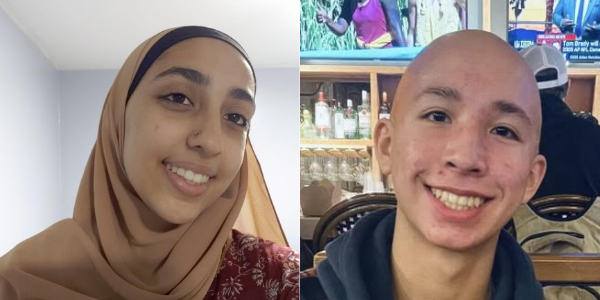Haya:
Asian-American: a term set to define a vast group of more than 3 billion people from across the continent of Asia, across various cultures, ethnicities, and backgrounds. Asian and American; American and Asian. Yet we’re still somehow not enough for Asians or Americans.
Declan:
Whilst I do live in Asia, I find that my experiences differ heavily from those around me. Perhaps that is because being an AAPI implicates being a minority or an immigrant, it involves a long history of our people being pushed away from the public eye as a result of institutional racism that runs deep in the veins of American society. But racism and colorism are not exclusive to America. I have encountered my own problems in Japan for my mixed ethnic background. The majority of students at my school are Asian, having grown up in Asia, and spoken their native languages for the majority of their life. To many of them, I am just ‘not Asian enough,’ as if the heritage that I carry and the experiences I’ve had are simply not enough.
Hidden in the background or foreground of community and media, stereotypes tend to be what define “us” collectively than us individually or truly. Instead of appreciation of our diverse culture and incredibly savory foods for example, we are often met with the mocking of our accents, personification by those that do not look like us, or glorification of the notion that we are “smart because we’re Asian.” Rather than understanding the struggles gone through by our parents and ourselves, we go through life with clenched jaws holding in our tears and fears, as we are expected to assimilate– as if we weren’t all foreigners to this nation once upon a time.
Living Room Conversations offers a way to feel truly seen and heard. It has always been a place of comfort and vulnerability, working to truly bridge divides through a series of intergenerational and extensive range of topics. We were excited to participate in the IG Live and hear the differing perspectives and experiences faced by other Asian-Americans who may have felt just as displaced and disassociated from identity as we have been. The biggest takeaways from that conversation were representation, acceptance, self-appreciation, and love.
Representation: Having grown up in America, we rarely see anybody that looks like me. Our small group conversation on Instagram brought to light how much our media is being transformed to include a wider variety of people that look like us: South Asians, East Asians, Middle Eastern… all types of Asians. That’s something we especially hope for as well – that no matter the industry, the magazine, the movie, we start to see darker women, natural bodies, freckled and acne-filled faces and highlight what true beauty is – in every woman and man no matter how they look or if they fill the preconceived standards set by society.
Acceptance: Oftentimes, racism comes from within. Even in our own communities, we make fun of other Asian cultures, making fun of their accents, their foods, their faces, etc., pushing what we consider to be “another group” unrelated to ourselves. Acceptance begins in ourselves, in our families – one of the hardest things to do – and our own societies before we expect others to treat us the same way that we want to be.
Self-Appreciation: We struggle to appreciate ourselves perhaps due to constantly changing beauty standards and unrealistic expectations that are set by magazines, movies, songs, etc. However, recognizing that differences will exist and that the part of my identity that comes from Asia. Either it is wearing cultural clothing with confidence, or enjoying an ethnic wedding. These things may seem simple, but often being ridiculed for our customs from a young age it harder to appreciate our authentic selves. But the key to bringing our goals forward is to accept and appreciate ourselves first.
Love: Love is a feeling of sincerity-whether that be romantic love, platonic love, or self-love. A community where we have shared conversations allows me to feel sincere appreciation for the shared experiences that we go through as Asian-Americans living in a western world. A world where we can talk to those who have had similar obstacles and appreciate them as people- I define that as love.
It’s conversations like these that allow us to connect with others on a deeper level. And it’s conversations like these that allow us to reclaim our identity as individuals and as members of a community.

